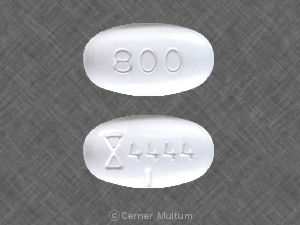Get emergency medical help if you have signs of an allergic reaction to gabapentin: hives; difficult breathing; swelling of your face, lips, tongue, or throat.

Seek medical treatment if you have a skin rash with symptoms of a serious allergic reaction that can affect other parts of your body, including: fever, dark urine, blood in your urine, swollen glands, sore throat, extreme weakness or tiredness, unusual bruising or bleeding, muscle pain, or jaundice (yellowing of the skin or eyes).
Report any new or worsening symptoms to your doctor, such as: mood or behavior changes, anxiety, depression, or if you feel agitated, hostile, restless, hyperactive (mentally or physically), or have thoughts about suicide or hurting yourself.
Call your doctor at once if you have:
- increased seizures;
- severe weakness or tiredness;
- upper stomach pain;
- chest pain, new or worsening cough with fever, trouble breathing;
- severe tingling or numbness;
- rapid back and forth movement of your eyes;
- kidney problems–little or no urination, painful or difficult urination, swelling in your feet or ankles, feeling tired or short of breath; or
- severe skin reaction–fever, sore throat, swelling in your face or tongue, burning in your eyes, skin pain followed by a red or purple skin rash that spreads (especially in the face or upper body) and causes blistering and peeling.
Some side effects are more likely in children taking gabapentin. Contact your doctor if the child taking this medication has any of the following side effects:
- changes in behavior;
- memory problems;
- trouble concentrating; or
- acting restless, hostile, or aggressive.
Common gabapentin side effects may include:
- dizziness, drowsiness; or
- headache.
This is not a complete list of side effects and others may occur. Call your doctor for medical advice about side effects. You may report side effects to FDA at 1-800-FDA-1088.
Gabapentin Abuse
A 2013 study in Kentucky found that of the 503 participants reporting illegal drug use, 15% reported using Gabapentin in addition to other drugs to get high in the previous six months. Another study, working with a sample of participants meant to represent the national population, found almost a quarter of patients with co-prescriptions of opioids and Gabapentin were getting more than three times their prescribed amount to supply their addiction. People using the drug without a prescription is a growing problem in many areas. Due to the drug’s legal status, this is difficult to address from a policing standpoint. States where Gabapentin abuse is becoming more common are beginning to classify the drug as a more strictly controlled substance.
Gabapentin’s unique ability to address multiple ailments has made it one of the most popular prescription medications in the U.S. In May of 2019, GoodRx reported that it was the fifth-most prescribed drug in the nation. Despite its low abuse potential, its ability to be used in conjunction with other drugs causes widespread harm and addiction.
Signs of a Gabapentin Addiction
Effects of excessive Gabapentin use include:
- Drowsiness
- Coordination problems
- Tremors
- Dizziness
- Depression
- Suicidal thoughts/behaviors
- Changes in mood
- Dizziness
- Poor coordination
- Forgetfulness
- Anxiety
- Difficulty speaking
- Inability to feel pleasure
It is important to try to recognize these symptoms and to be wary of other red flags, such as the presence or abundance of pill bottles. These effects can be detrimental to one’s health, livelihood, and overall safety.
Many Gabapentin users in early recovery abuse Gabapentin because at high doses (800mg or more), they may experience a euphoric-like high that does not show up on drug screens. Gabapentin abusers typically take the drug in addition to opioids to produce their desired high, a dangerous and potentially deadly combination. It is possible to fatally overdose on Gabapentin, both on its own or in conjunction with other drugs. However, there is currently no antidote that can be administered to someone in the case of a Gabapentin overdose as there is with opioid overdoses. If you find a loved one showing signs of an overdose–drowsiness, muscle weakness, lethargy and drooping eyelids, diarrhea, and sedation—seek medical attention immediately.
Signs of Gabapentin Addiction
- Lying about or exaggerating symptoms to doctors
- Seeking out multiple doctors to get extra doses
- Switching doctors after the original doctor refuses to continue prescribing the medication
- Changes in social habits and/or circles
- Changes in personal hygiene and grooming habits
- Constant preoccupation with the drug
- Unease at the thought of the drug being unavailable
- Refusal to quit despite social, financial, or legal consequences
- Failed attempts to quit